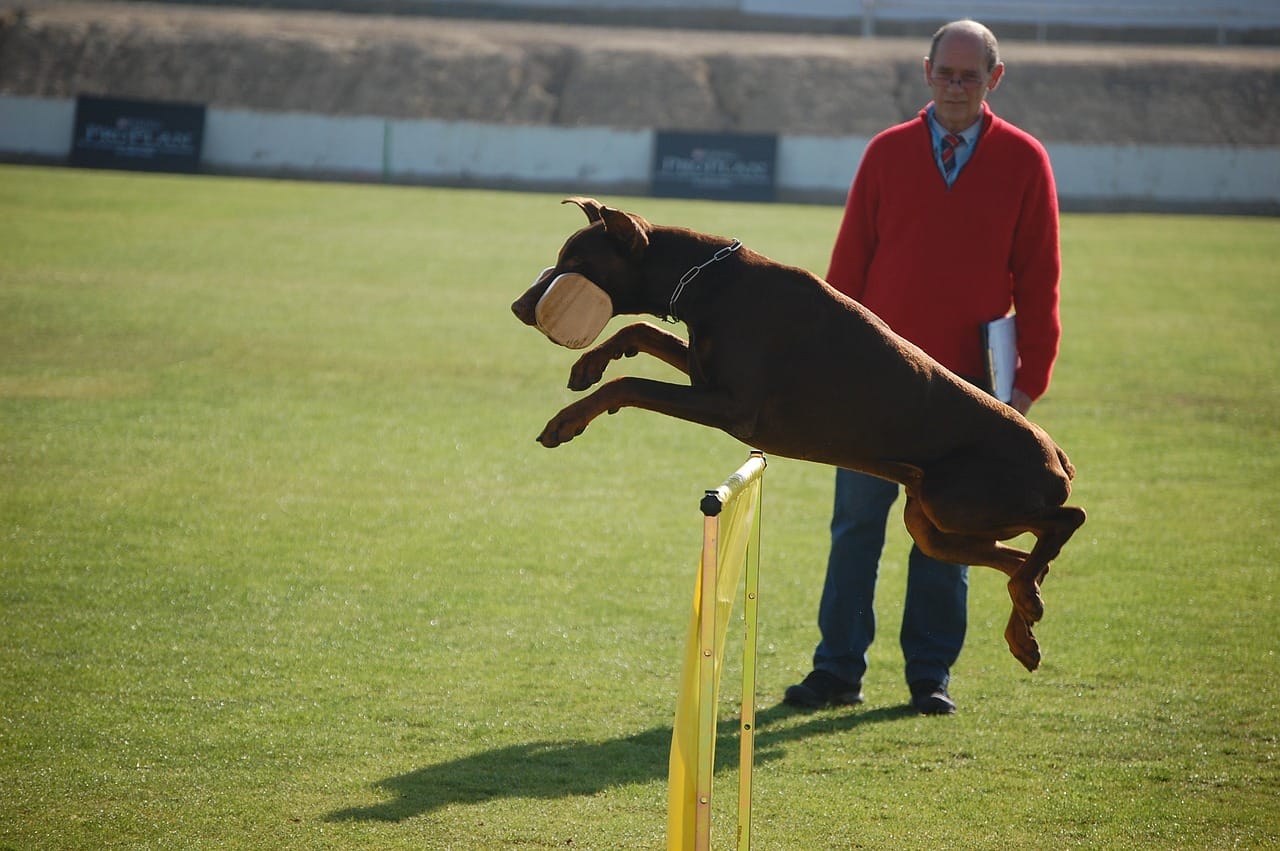
The 7 Habits of highly effective dog trainers are about more than just professional trainers. If you are training your dog, you, too, are a dog trainer. Perfecting some of these great habits will help you become more effective.
Table of Contents
1. Highly effective trainers are organized
Many keen, outdoorsy, and doggy folk avoid planning their dog training. They associate planning with work, offices, and bureaucracy. However, you need to be organized and plan to get the best from dog training sessions. An effective trainer will often note his achievements in a training session and jot down a few targets for the next. I keep a separate A6 notebook for each dog with the dog’s name on the front. It is small enough that I can easily fit several in a pocket, and that way, I don’t (often) waste time standing in the middle of a field wondering what the hell I am supposed to be doing!
2. Highly effective trainers can see the world from the dog’s point of view
One of the excellent trainer’s best attributes is the ability to view the world through a dog’s eyes. Dogs do not see things the way people do, and understanding a situation from the dog’s perspective enables the trainer to anticipate problems and make fast, effective decisions.
Highly effective trainers expect their dogs to behave like dogs. This avoids a lot of disappointment.
This kind of understanding comes very naturally to some people. We tend to describe them as having ‘dog sense.’ But it can be learned, too, by anyone willing to take the time to discover how dogs actually think and learn. This information is available online and in good books on canine psychology.
3. Highly effective trainers are persistent.
Dog training can be tricky. Whether you are training just your own dog or other people, there will be times when you don’t feel like training, or you seem stuck in a rut and failing to make progress. There can be days when your dog appears hell-bent on forgetting everything you ever taught him. At times like these, persistence is required to work through and stick to the task.
4. Highly effective trainers set their dogs up to win
There used to be a pretty popular dog training strategy: teaching a dog a command under fairly undemanding circumstances and challenging his obedience to this command under various circumstances. This essentially sets the dog up to lose so that he can be ‘caught in the act’ of being naughty and punished for doing so.
Setting a dog up to win is achieved by training in small incremental steps that are easily achievable, moving those goalposts slowly, mixing more difficult exercises up with plenty of easier ones, and preventing the dog from getting into situations where he can reward himself for being naughty. This non-confrontational training is not always straightforward to ‘set up,’ especially as training advances, but it is extremely rewarding and teaches the trainer a great deal.
5. Highly effective trainers are patient
This is one that I have to work hard on every day of my life. I am not a patient person. But dogs, like children, can teach you patience if you let them.
When you are irritated with your dog, it is often because you have rushed ahead before he was ready or tried to ‘test’ him or ‘show off’ his new skills in front of friends. Remind yourself it is not a race. Always allow twice as long as you think it will take to achieve anything new.
The highly effective trainer has the utmost respect for the dog’s limitations. Retracing your steps when the dog fails to grasp what you want, starting over, and remaining calm on days when your dog appears to have the attention span of a gnat and the IQ of a melon are all helpful strategies for demonstrating that respect.
6. Highly effective dog trainers are reasonable
Dogs learn by the consequences of their behavior. We train dogs by manipulating those consequences in a precise and reasonable manner.
Punishing a dog for behavior he cannot control or failing to reward appropriate behavior is unreasonable. It is unreasonable to punish and confront a dog if there is a better way to achieve the desired result or if it is not essential.
These are judgment calls, and to make these judgment calls, dog trainers need to equip themselves with adequate behavioral knowledge and understanding. It is unreasonable to attempt to train an animal without this fundamental equipment.
7. Highly effective dog trainers are always learning
We have all met the trainer who thinks they know all there is to know. You may have been to a class where the trainer’s attitude is, “It’s my way or the highway.”
However, effective trainers know their weaknesses (and we all have some). They know there is always more to learn from other people and dogs.
They know that there is more than one way to train a dog. They can adapt methods to suit the sensibilities of different dog owners and the range of temperaments of the dogs they train. A little humility and a thirst for knowledge go a long way in dog training.
How about you? What is a highly effective dog trainer’s most crucial habit or quality? You can share your thoughts using the comments box below.
If you found this article interesting, you might like to read ‘How Dogs Learn’ and Four Steps to Becoming a Dog Trainer.








Comments (1)
Jacksonsays:
26/08/2023 at 14:21What examples of good canine psychology books provide information on how dogs think and learn?